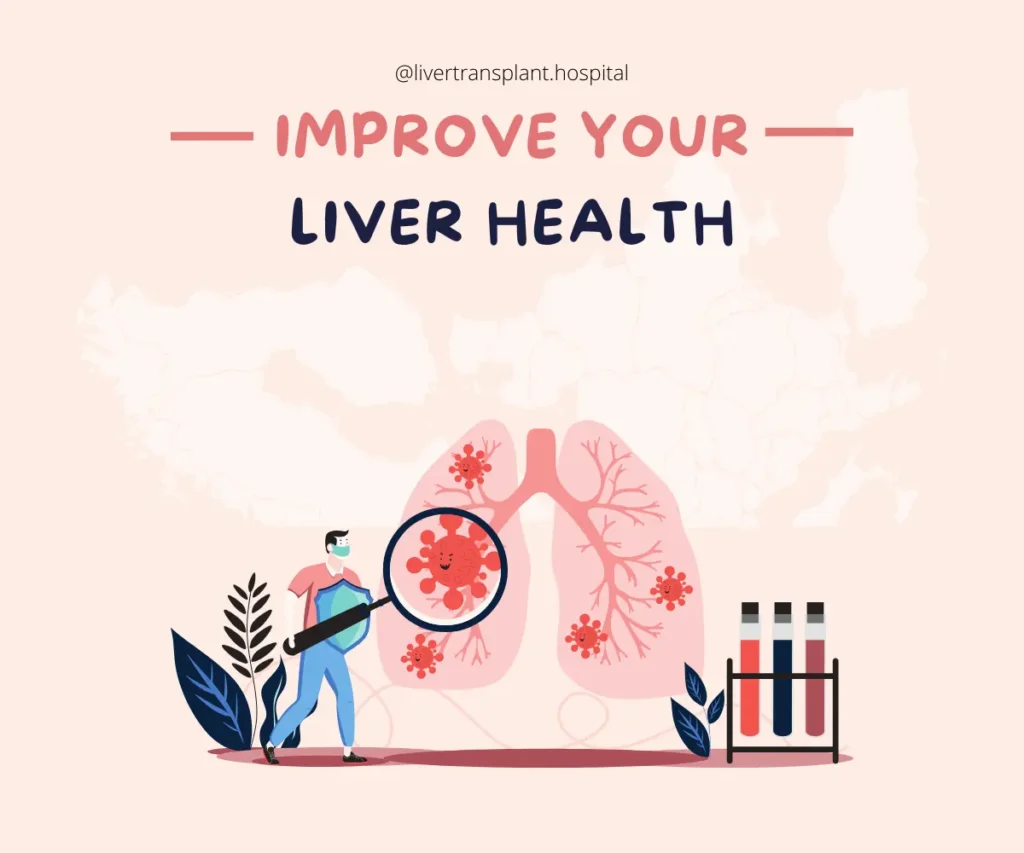Testing for Viral Hepatitis is crucial for detecting liver infections early, preventing long-term damage. Viral hepatitis, caused by different strains like Hepatitis A, B, and C, can lead to severe liver issues if left untreated. Through timely Testing for Viral Hepatitis, individuals can identify the infection before it progresses, allowing for appropriate treatment.
Understanding the different tests available helps in protecting your liver health and avoiding complications such as liver failure or the need for a liver transplant.
What Is Hepatitis?
Hepatitis refers to the inflammation of the liver, often caused by viral infections. The most common types of viral hepatitis are Hepatitis A, B, and C, each affecting the liver in different ways. Early detection through Testing for Viral Hepatitis is essential to prevent serious complications such as liver cirrhosis, liver failure, or even liver cancer. Each hepatitis virus has unique characteristics that influence its transmission and treatment options.
- Hepatitis A: This type is typically transmitted through contaminated food or water. It does not usually lead to chronic liver disease but can cause acute liver inflammation. Viral hepatitis screening tests can quickly identify this infection.
- Hepatitis B: Spread through bodily fluids such as blood, semen, or from mother to child during childbirth. Chronic Hepatitis B can lead to severe liver damage over time, making early detection through diagnostic tests for viral hepatitis critical.
- Hepatitis C: Transmitted mainly through blood-to-blood contact, such as shared needles. Hepatitis C often becomes chronic and may lead to significant liver issues, including cirrhosis or the need for a liver transplant.
Early Testing for Viral Hepatitis is essential to identify these viruses, manage the infection, and prevent long-term liver damage.
Hepatitis Virus Panel
The Hepatitis Virus Panel is an essential diagnostic test for viral hepatitis that screens for multiple types of hepatitis, including Hepatitis A, B, and C. This blood test helps healthcare providers determine whether someone has been exposed to the virus, is currently infected, or has developed immunity. Early detection through the Hepatitis Virus Panel is vital for preventing complications, such as chronic liver disease or liver cancer.
This comprehensive viral hepatitis screening test can identify the following:
- Hepatitis A: Detects recent or past infections by checking for specific antibodies (IgM and IgG).
- Hepatitis B: Screens for antigens and antibodies that indicate current, past, or chronic infection, including chronic hepatitis B antibodies.
- Hepatitis C: Identifies antibodies produced in response to the Hepatitis C virus, indicating past or present infection.
The Hepatitis Virus Panel is recommended for individuals at high risk, including:
- Those with a history of drug use or shared needles
- People with multiple sexual partners
- Healthcare workers exposed to blood and bodily fluids
- Travelers to areas with high hepatitis prevalence
This panel plays a crucial role in early intervention and treatment, helping to protect liver health and prevent severe outcomes like cirrhosis or the need for a liver transplant.
Hepatitis A Screening
Hepatitis A screening is an essential part of diagnosing and preventing the spread of this highly contagious virus. Hepatitis A is typically transmitted through contaminated food or water, making it a common concern, especially in areas with poor sanitation. Early Testing for Viral Hepatitis is vital for identifying the infection and taking necessary steps to avoid complications.
When you undergo Hepatitis A screening, your healthcare provider will test your blood for specific antibodies known as immunoglobulin M (IgM), which indicate a recent infection. Identifying Hepatitis A early can help prevent the virus from spreading to others, and ensure timely treatment and recovery.
Key aspects of Hepatitis A screening include:
- Detects IgM antibodies to confirm recent exposure to the virus.
- Simple blood test that can quickly determine if you’ve been infected.
- Recommended for individuals exposed to contaminated food, water, or those traveling to high-risk areas.
Testing for Viral Hepatitis like Hepatitis A is especially important for those at risk, such as healthcare workers, individuals in close contact with someone who has the virus, and travelers. Early detection through Hepatitis A screening helps ensure proper care and reduces the chances of severe liver complications.
Hepatitis B Screening
Hepatitis B screening is an essential diagnostic tool for detecting the Hepatitis B virus (HBV) early, especially since the infection can become chronic and cause long-term liver damage. If not detected in its early stages, Hepatitis B can lead to severe complications, including liver cirrhosis, liver failure, or even liver cancer. This is why testing for viral hepatitis is critical in preventing irreversible damage.
When undergoing a diagnostic test for viral hepatitis, several specific tests are included in Hepatitis B screening. These tests check for viral antigens, antibodies, and other markers to determine the presence and stage of the infection.
- Hepatitis B Surface Antigen (HBsAg): Detects if you have an active Hepatitis B infection.
- Hepatitis B Surface Antibody (anti-HBs): Indicates immunity either through recovery from past infection or vaccination.
- Hepatitis B Core Antibody (anti-HBc): Shows past or ongoing infection with Hepatitis B.
It’s essential for high-risk individuals, such as healthcare workers or those with multiple sexual partners, to undergo regular viral hepatitis screening tests. Early detection of chronic hepatitis B antibodies through these screenings helps manage the disease and prevent further liver damage, offering the best chance of successful treatment and avoiding severe complications.
Hepatitis C Screening
Hepatitis C is a serious viral infection that can lead to chronic liver disease, cirrhosis, and even liver cancer if left untreated. Early Testing for Viral Hepatitis, particularly Hepatitis C, is essential to prevent severe complications. Hepatitis C is often called a “silent infection” because many people don’t show symptoms until significant liver damage has already occurred. A viral hepatitis screening test for Hepatitis C involves checking for antibodies your body produces in response to the virus. If antibodies are detected, further tests may be needed to confirm an active infection.
The benefits of Hepatitis C screening include:
- Early detection of the virus before symptoms develop.
- Preventing long-term liver damage, cirrhosis, or liver cancer.
- Identifying those who may need antiviral treatment.
- Reducing the risk of spreading the infection to others.
Hepatitis C screening is particularly important for individuals who are at higher risk, such as:
- Those with a history of intravenous drug use.
- Individuals who received blood transfusions before 1992.
- People born between 1945 and 1965 (Baby Boomers).
- Healthcare workers who have been exposed to blood.
Getting tested through a diagnostic test for viral hepatitis is a proactive step to safeguard your health and prevent complications. Early detection allows for timely treatment, minimizing the risk of severe liver disease.
Why Do I Need a Hepatitis Panel?
Undergoing a hepatitis panel is essential for early detection of liver infections caused by Hepatitis A, B, or C. These viruses can lead to serious liver damage, including cirrhosis or even liver failure if left untreated. By taking a comprehensive viral hepatitis screening test, you can identify an infection early, enabling timely treatment and preventing complications.
The diagnostic test for viral hepatitis involves checking for antibodies or antigens in your blood, which can indicate whether you have a current or past infection. This test is particularly important for individuals at high risk of contracting hepatitis, such as healthcare workers, people who engage in unprotected sex, or those who have used intravenous drugs. It is also recommended for those who have been in close contact with someone diagnosed with hepatitis.
You may need a hepatitis panel if:
- You have traveled to regions with high hepatitis rates.
- You have had unprotected sexual contact with someone who has hepatitis.
- You’ve shared needles or been exposed to unscreened blood.
- You are pregnant and want to prevent passing Hepatitis B to your baby.
- You experience symptoms such as jaundice, fatigue, or abdominal pain.
By getting tested with a viral hepatitis screening test, you can safeguard your liver health and prevent future complications.
What Do the Results Mean?
After undergoing Testing for Viral Hepatitis, understanding your results is crucial in determining the next steps for your health. The results from a viral hepatitis screening test can fall into several categories, depending on the type of hepatitis and the presence of antibodies or antigens in your blood. These results help in diagnosing whether you have an active infection, a past infection, or have developed immunity.
Here’s what your results could indicate:
- Positive for Antibodies: This means your immune system has encountered the virus, either through past infection or vaccination.
- Positive for Antigens: If you test positive for antigens, it indicates a current viral infection requiring immediate treatment.
- Negative for Both Antibodies and Antigens: This suggests you’ve never been exposed to the virus and may need vaccination if you’re at risk.
- Chronic Infection: If your results show you’ve had chronic hepatitis B antibodies for more than six months, ongoing medical management is needed to prevent further liver damage.
Your healthcare provider will interpret the results of the diagnostic test for viral hepatitis and guide you on the appropriate next steps, such as treatment options or preventive measures like vaccination.
Conclusion
Liver transplants are often the last resort for people whose liver has been severely damaged by hepatitis. Early Testing for Viral Hepatitis can prevent such extreme outcomes. Whether it’s hepatitis A screening or detecting chronic hepatitis B antibodies, getting tested early is key to managing the disease and maintaining liver health. Take action today by speaking with your healthcare provider about your risk factors and the need for a viral hepatitis screening test. Protect your liver before it’s too late.






